NBP periodically publishes short articles on nuclear energy matters which either have a geographic or topical focus. Feel free to browse through all our articles and if you would like to read on something specific, please use the search function. For example, you can search for articles relating to Africa or India or financing or SMR etc. You can also use the filter function to see articles pertaining to Asia, Africa, India or Türkiye.
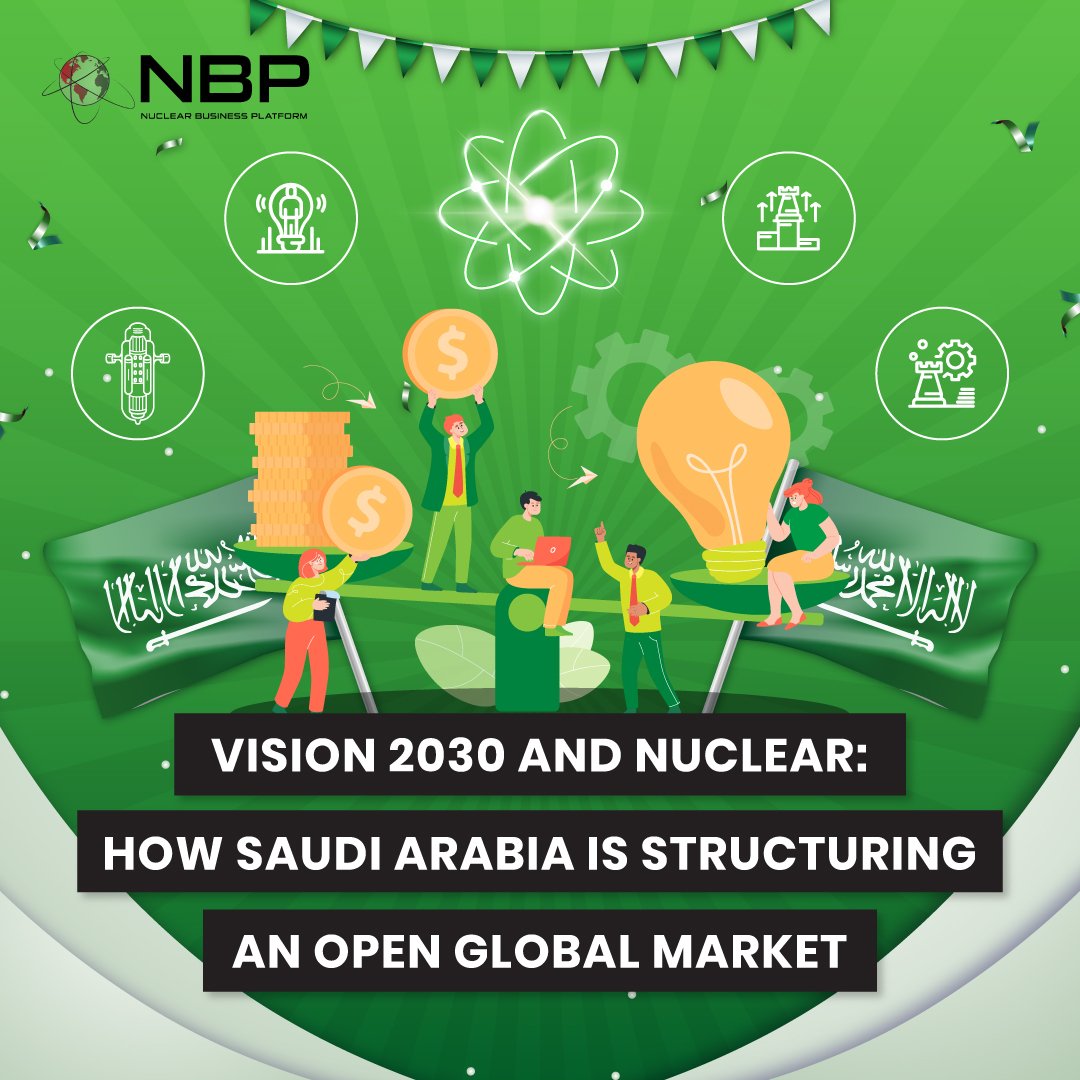
Vision 2030 and Nuclear: How Saudi Arabia Is Structuring an Open Global Market
Saudi Arabia is redefining the nuclear entry model by prioritizing institutional governance and multi-purpose infrastructure over rapid reactor awards. With technical specifications finalized for its first large-scale plant and a formal shift to IAEA Comprehensive Safeguards, the Kingdom is creating a bankable ecosystem for global vendors.
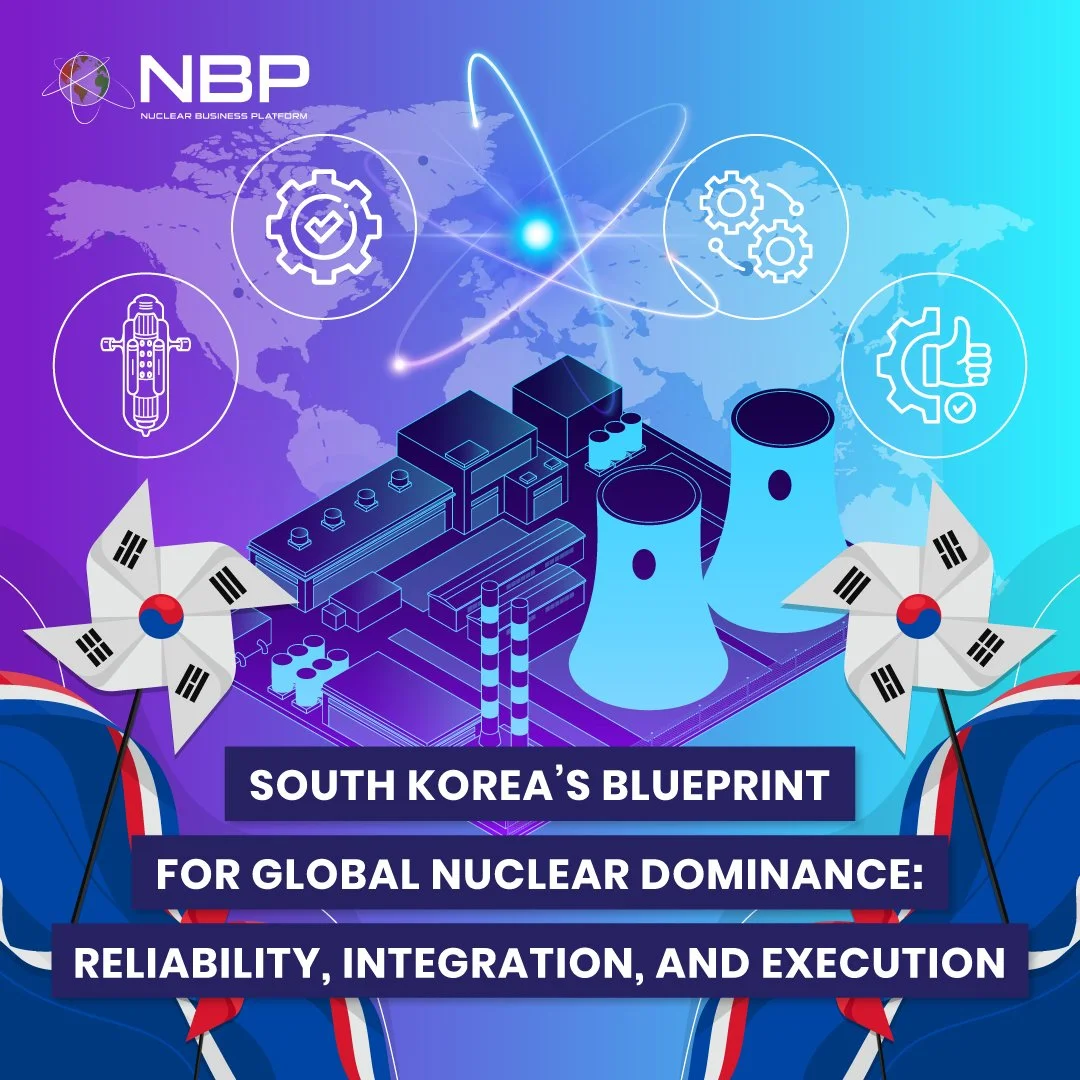
South Korea’s Blueprint for Global Nuclear Dominance: Reliability, Integration, and Execution
South Korea has firmly established itself as the most credible partner in the global nuclear market by prioritizing execution discipline over speculation. Through a vertically integrated industrial model, the nation has successfully delivered major projects across diverse regulatory landscapes, from the United Arab Emirates to the Czech Republic.
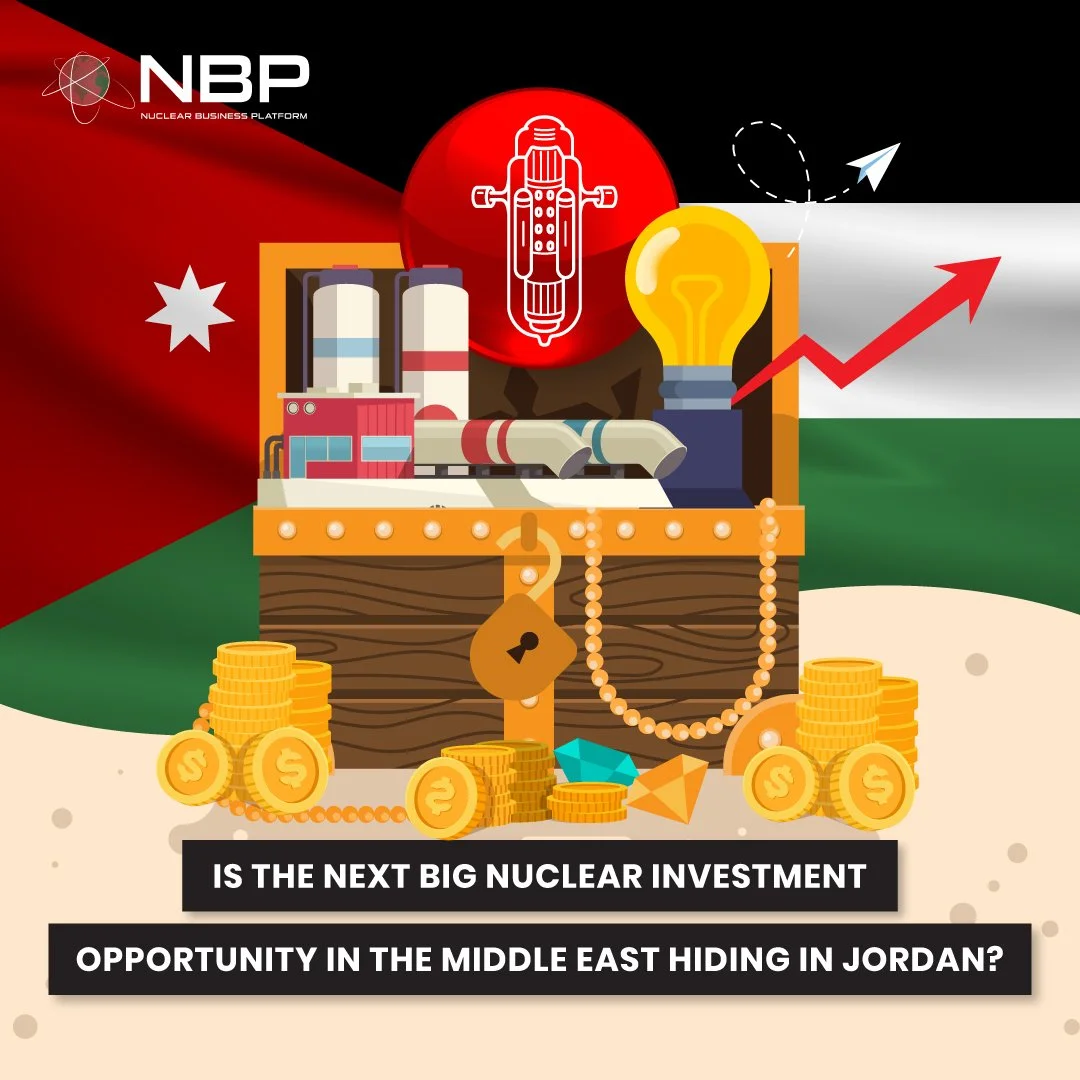
Is the Next Big Nuclear Investment Opportunity in the Middle East Hiding in Jordan?
🇯🇴 Jordan is emerging as a top-tier SMR market due to the urgent need for baseload power to secure both energy and critically scarce water supplies (desalination). A decade of strategic vendor engagement and planning has reduced risk, positioning SMRs as the most viable, scalable, and commercially ready solution for 🇯🇴 Jordan’s national resilience.

Japan’s Nuclear Comeback: Rebuilding Confidence and Opening New Doors for Global Investors
Japan is strategically reopening its nuclear market! Driven by energy security and industrial competitiveness, the Seventh Basic Energy Plan formalizes reactor restarts, lifetime extensions, and new builds. This policy stability makes Japan one of Asia's most predictable and advanced markets for global nuclear investment.
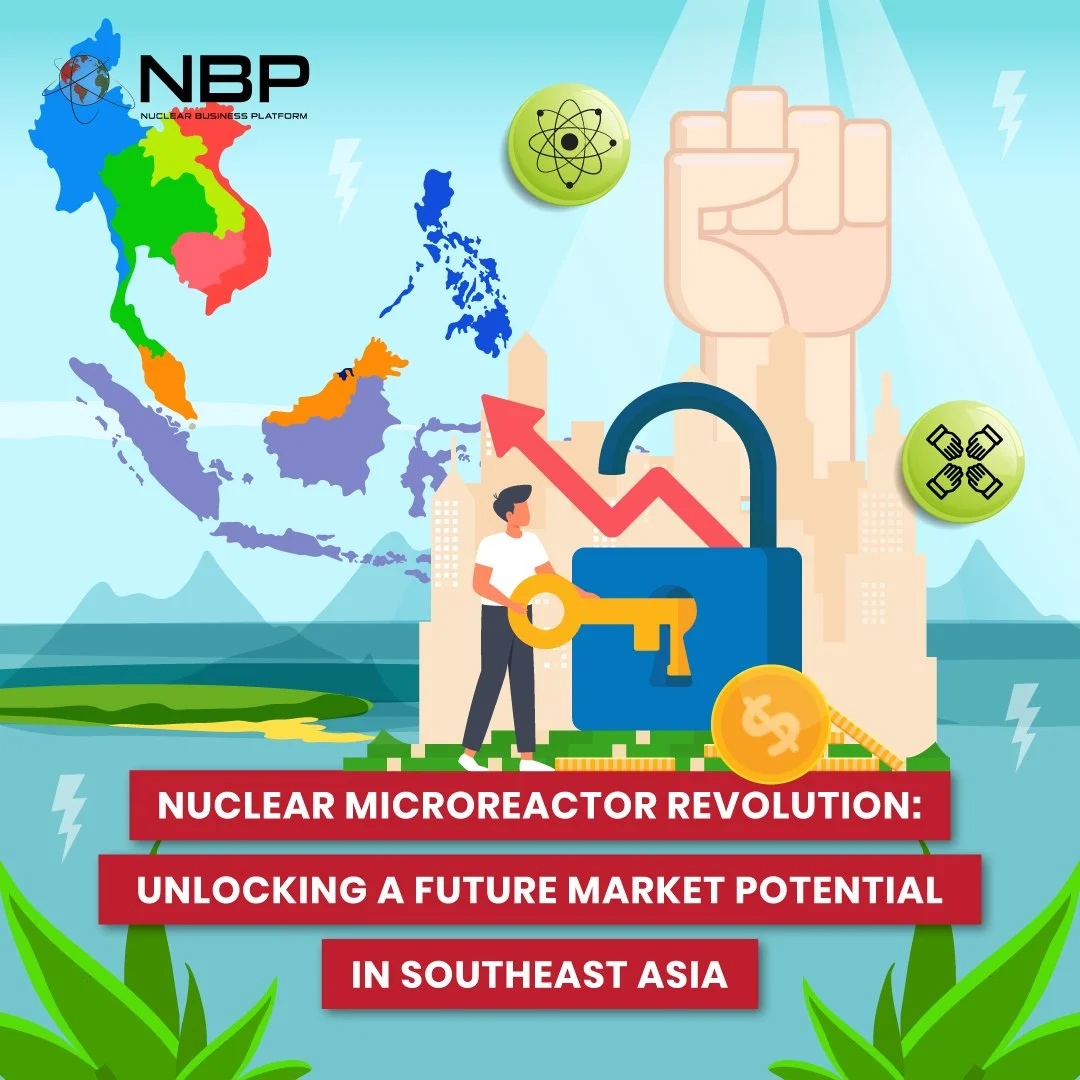
Nuclear Microreactor Revolution: Unlocking a Future Market Potential in Southeast Asia
Nuclear microreactors are the game-changer for ASEAN's energy grid! These compact, factory-built systems solve the clean baseload dilemma for remote islands and industrial clusters, offering cost-competitive power against diesel. This flexible technology is crucial for achieving NZE targets and driving inclusive economic growth.

China’s Nuclear Supremacy: Why Global Investors Can’t Ignore the World’s Largest Reactor Pipeline
🇨🇳 China is the engine of the global nuclear renaissance! Its "whole-of-government" model, massive pipeline (33 reactors under construction), and state-backed financing cut costs to ~$2,500/kW. This institutional stability and speed make 🇨🇳 China the world's most predictable and active nuclear market. Understand this strategic model and its global impact.

From Uranium Leader to $15 Billion Nuclear Powerhouse: Kazakhstan Unlocks Central Asia’s Nuclear Market
🇰🇿 Kazakhstan, the world's largest uranium producer, is launching its first commercial nuclear power plant (NPP) in Ulken, near Almaty, after a national referendum approved the project. Russia's Rosatom was selected to lead an international consortium in deploying two 2,400 MW VVER-1200 reactors to address the country's 2 billion kWh energy deficit and secure long-term energy stability. This $15 billion project is a major investment opportunity for global firms, as Kazakhstan aims to transition from a raw uranium supplier to an integrated nuclear energy nation. Understand the strategic business opportunities in this new Central Asian hub.
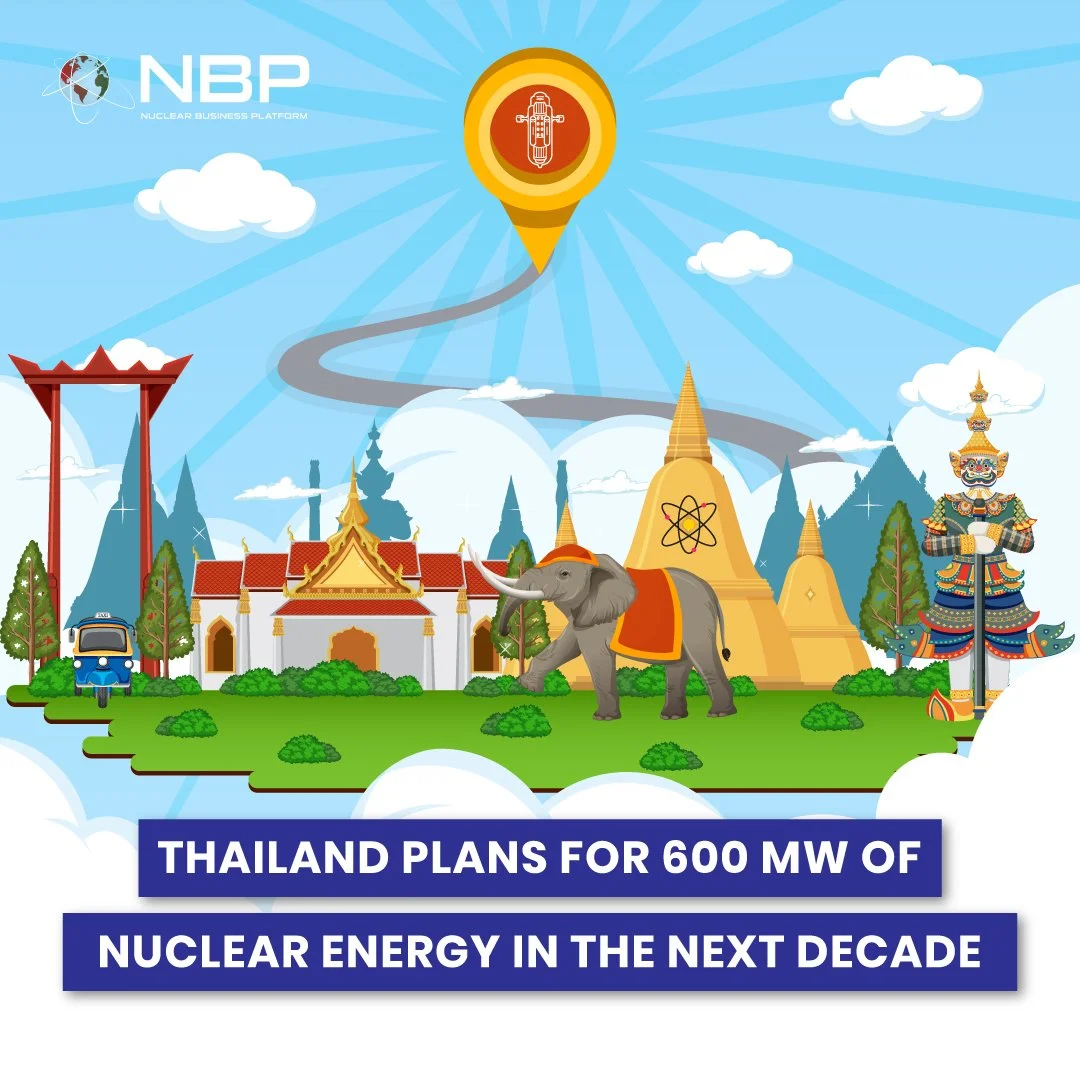
Thailand Plans for 600 MW of Nuclear Energy In The Next Decade
Thailand is making a strategic pivot to nuclear energy! To meet rising electricity demand and its Net Zero 2050 target, the nation is focusing on SMRs. With a solid legal foundation and new international partnerships, Thailand is laying the groundwork for a secure, sustainable energy future.
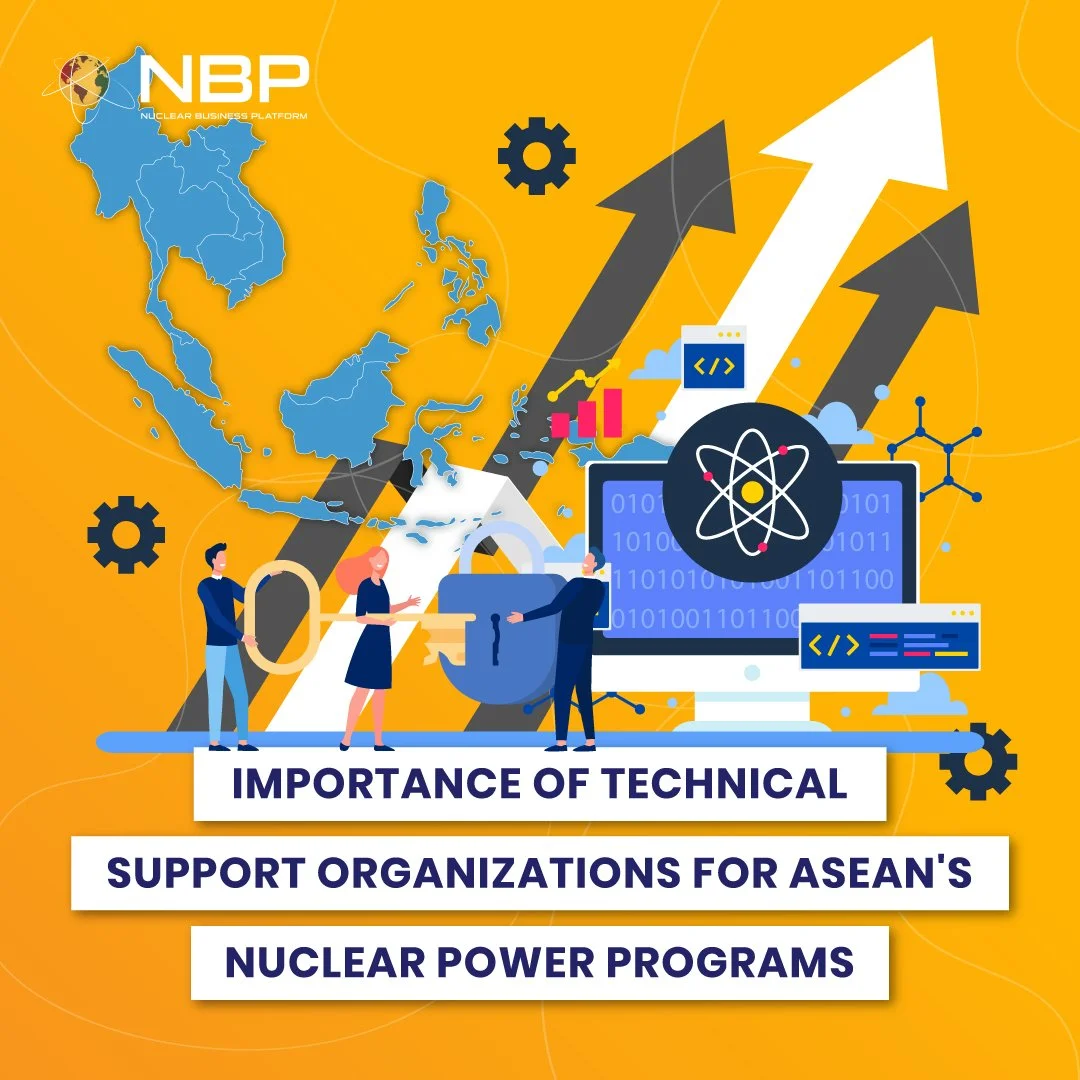
Importance of Technical Support Organizations for ASEAN's Nuclear Power Programs
TSOs are the hidden catalysts for ASEAN's nuclear success! TSOs provide independent technical support to regulators, ensuring safety, building public trust, and avoiding vendor dependency. This is a non-negotiable step for countries planning nuclear power. Strong TSOs are the foundation of a secure nuclear future.
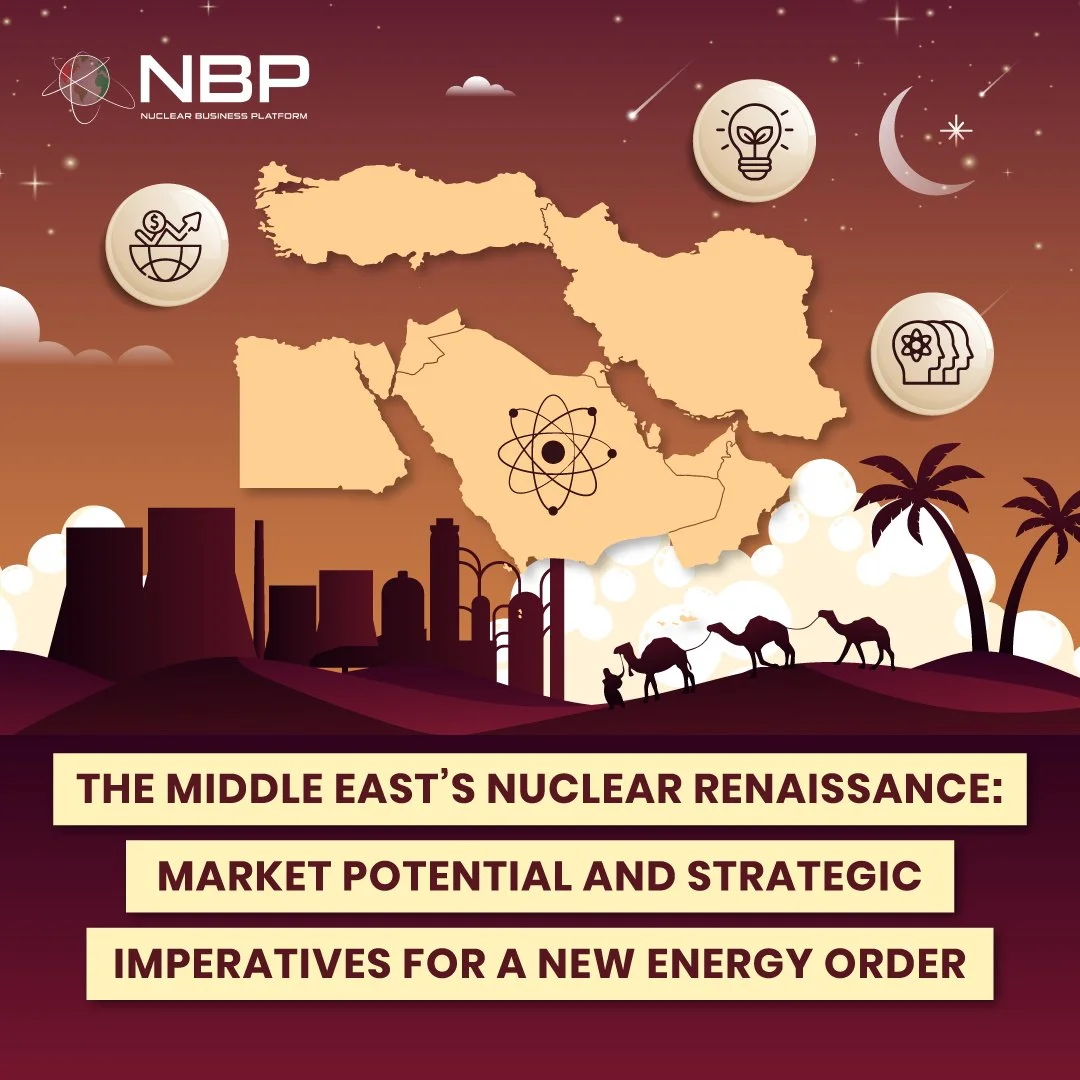
The Middle East’s Nuclear Renaissance: Market Potential and Strategic Imperatives for a New Energy Order
The Middle East is at the heart of a nuclear renaissance! Countries like UAE, Saudi Arabia, Egypt, and Türkiye are leveraging nuclear energy for economic diversification, energy security, and decarbonization. With a growing market for SMRs and dual-purpose solutions for desalination, this is a prime opportunity for global firms.
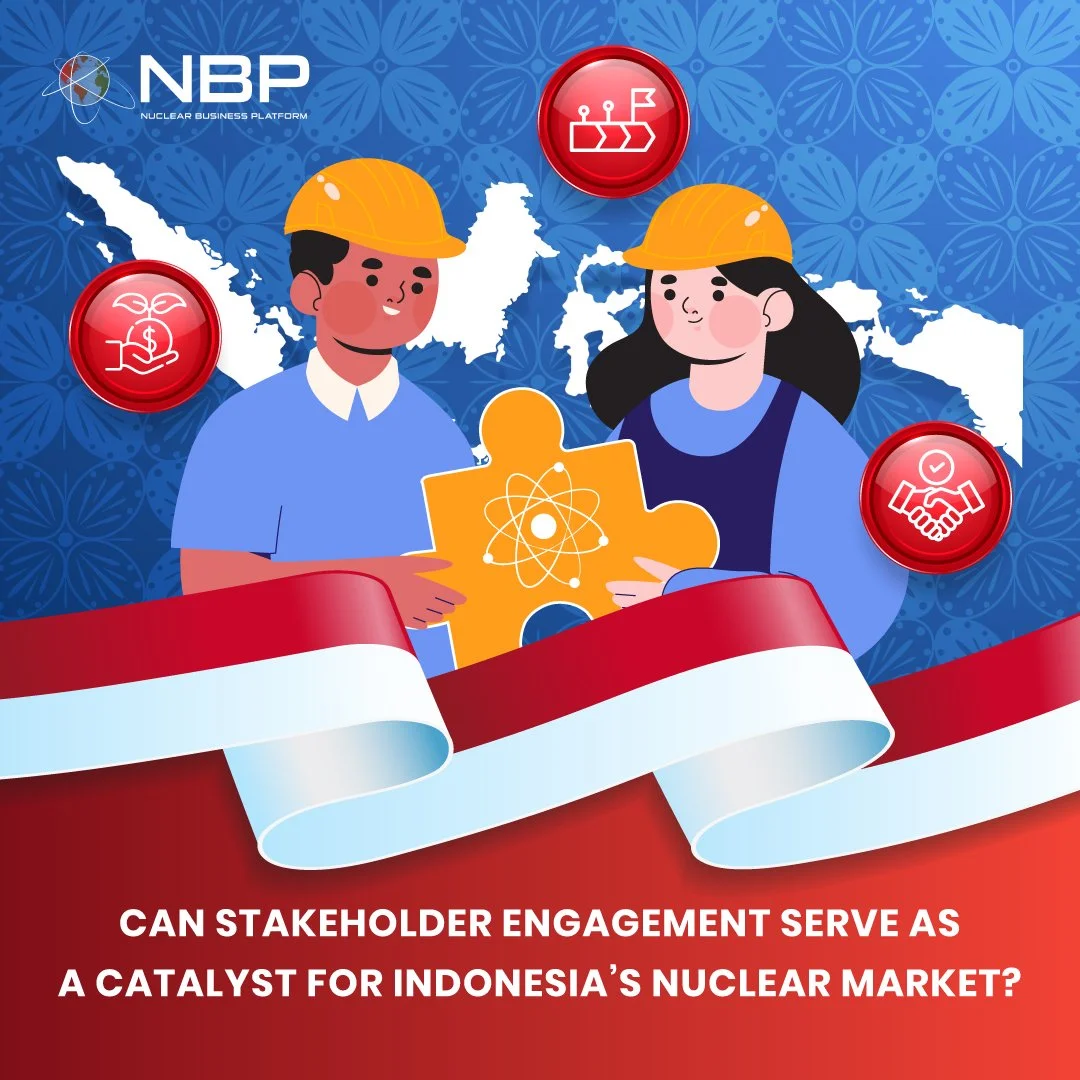
Can Stakeholder Engagement Serve as a Catalyst for Indonesia’s Nuclear Market?
Indonesia's nuclear energy future hinges on stakeholder engagement! While ambitious plans for 500 MW are set, gaining public trust, particularly from indigenous communities, is critical. This is not just a social issue but a commercial imperative to avoid costly delays and ensure long-term investment success.
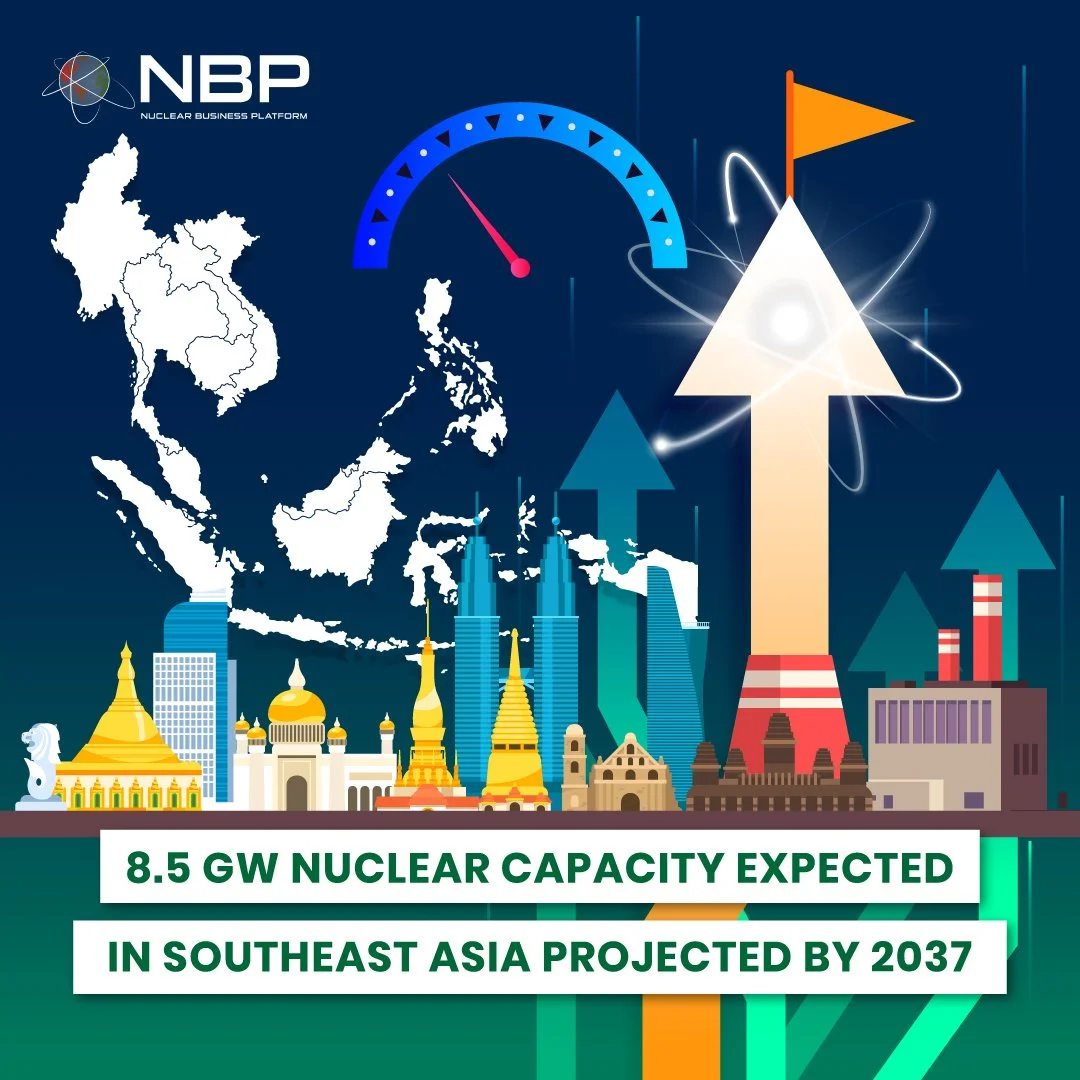
8.5 GW Nuclear Capacity Expected in Southeast Asia Projected by 2037
Southeast Asia is embarking on a nuclear energy era! With countries like 🇮🇩 Indonesia, 🇲🇾 Malaysia, 🇻🇳 Vietnam, and 🇵🇭 Philippines leading the charge, the region targets 8.5 GW of nuclear capacity by 2037.
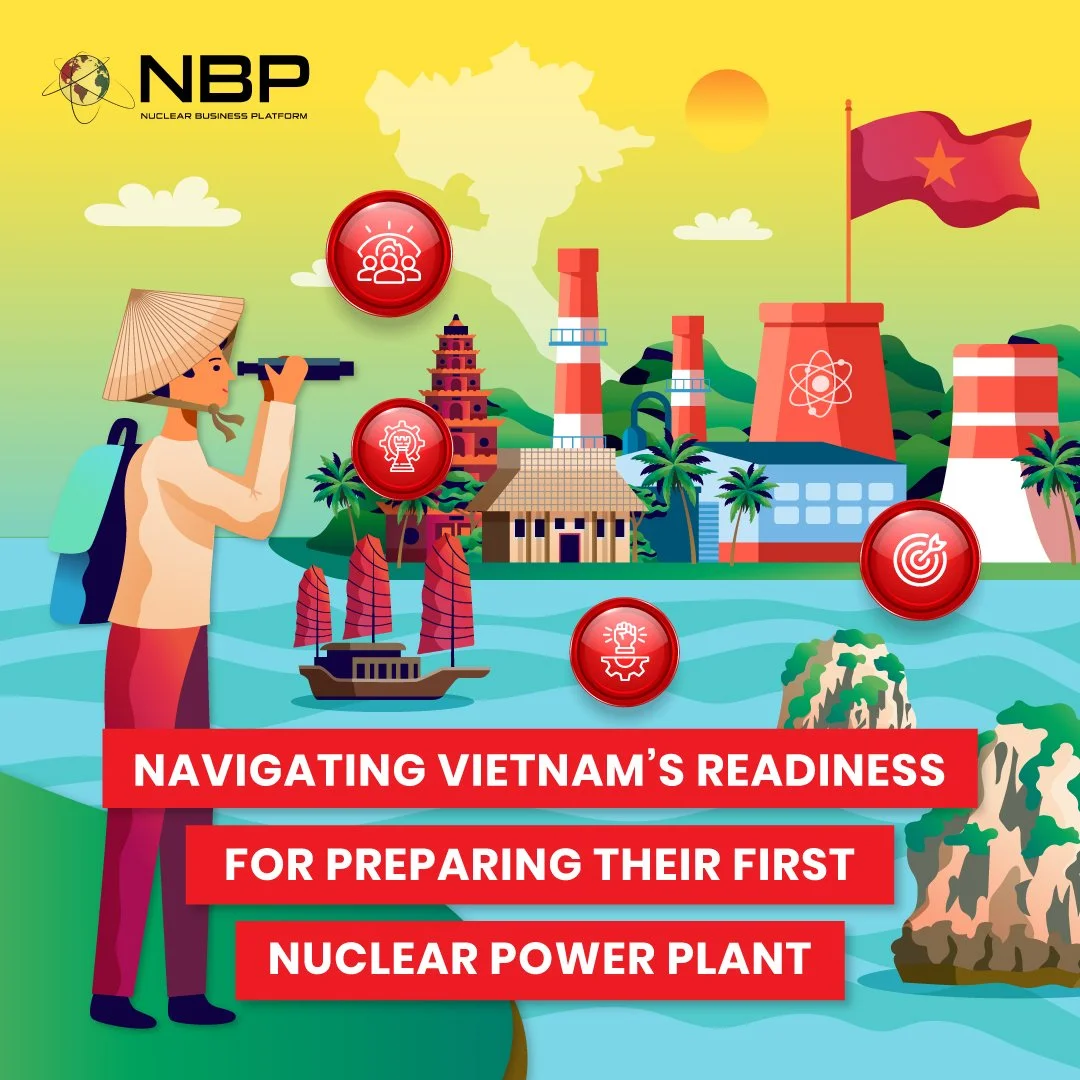
Navigating Vietnam’s Readiness for Preparing Their First Nuclear Power Plant
Vietnam is accelerating its nuclear ambitions to meet soaring energy demands and net-zero goals! With a new Atomic Energy Law and a clear roadmap for the Ninh Thuan NPP, Vietnam is ready to become a nuclear powerhouse in Southeast Asia. To understand the full scope of Vietnam’s nuclear future and the strategic business opportunities it presents, read the full article.

Malaysia’s Nuclear Comeback: Leading Southeast Asia to Net-Zero
Malaysia is reviving its nuclear energy ambitions! Nuclear power is now a key part of the 13th Malaysia Plan (RMK13), aiming for a Net Zero 2050. This strategic pivot to SMRs and FNPPs offers immense opportunities for partners and investors in the country's clean energy future. To uncover the full scope of this transformative plan, read the complete article.

Indonesia’s Nuclear Ambition: Harnessing Uranium for a Green 2060
Indonesia holds vast uranium (90k tons) and thorium (140k tons) reserves! This resource wealth positions 🇮🇩 to fuel its ambitious nuclear energy program and achieve Net Zero Emissions by 2060. Discover how Indonesia plans to become a nuclear fuel supplier

ASEAN Goes Nuclear: Significant Moves Towards Nuclear Power Era
ASEAN is entering a new nuclear energy era! Faced with surging demand & climate goals, Indonesia, Vietnam, Philippines, Thailand, Malaysia, and Singapore are actively pursuing nuclear power, especially SMRs & FNPPs. Discover how this shift creates huge market opportunities!

Can 123 Agreements Boost Southeast Asia’s Nuclear Energy Programs?
A new era of nuclear cooperation is dawning in Southeast Asia, largely driven by the 🇺🇸 USA's 123 Agreements! Nations like Philippines, Singapore, and Thailand are leveraging these pacts to accelerate their nuclear power programs. To understand how these crucial agreements are reshaping the region's energy landscape and creating opportunities, delve into the full article.

Powering Indonesia’s Digital Transformation: The Promise of Nuclear Energy for Future Data Centers
Indonesia's booming data center market needs reliable, clean power! With projected growth to $3.98B by 2028, Indonesia is eyeing nuclear energy, especially SMRs and FNPPs, to meet 24/7 demands for AI & cloud computing while hitting net-zero targets. Uncover the full scope of this unique opportunity

Unlocking ASEAN's Nuclear Future: Progress in Nuclear Power Plant Development
Southeast Asia is rapidly embracing nuclear energy! With electricity demand tripling by 2050, 🇮🇩 Indonesia, 🇵🇭 Philippines, and 🇻🇳 Vietnam are leading the charge, developing SMRs, FNPPs, and bolstering regulatory frameworks. Uncover the full scope of this multi-billion dollar market opportunity.

Could Floating Nuclear Power Plants Unlock Indonesia’s Energy Future?
Indonesia is eyeing Floating Nuclear Power Plants (FNPPs) to power its 17,000+ islands! Given distribution challenges and net-zero goals, FNPPs and SMRs offer clean, reliable energy for remote areas. Rosatom's proposal for an FNPP in West Kalimantan signals major potential.
